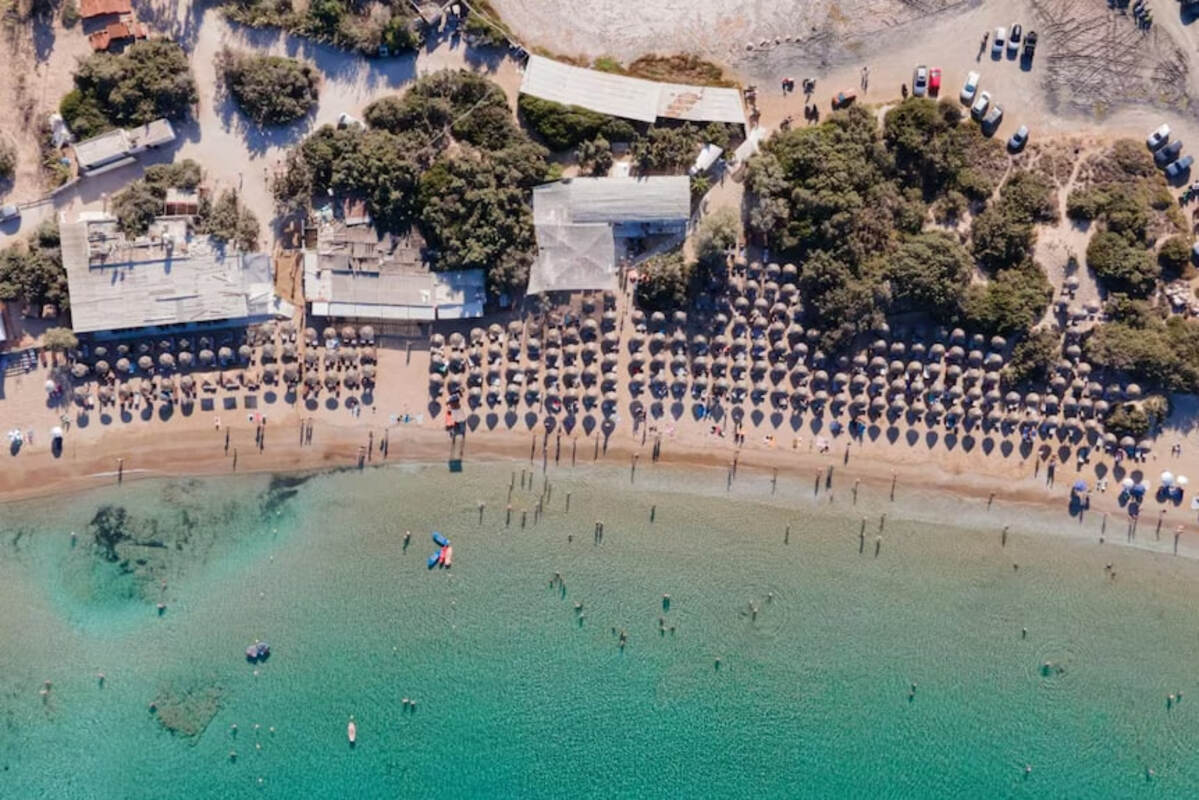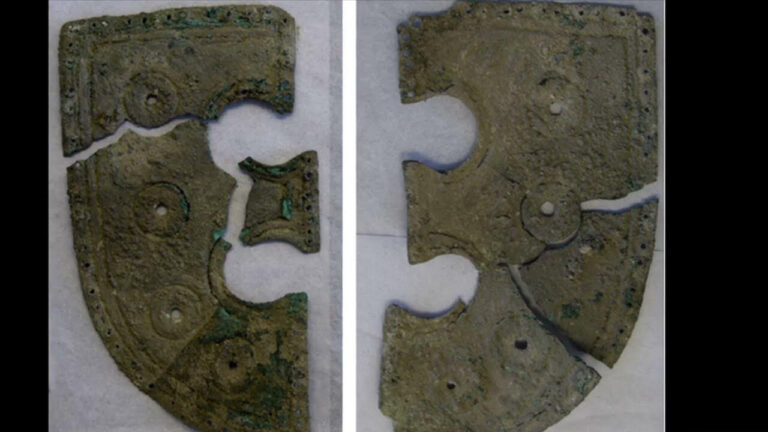For some, it sounds like the perfect day: sunlounge on the sand, a short skip from the glistening sea, good book in one hand, spritzer in the other.
Ronit Nesher can’t stand it.
“Even five years ago, I could go to any beach and just go and enjoy nature, enjoy the sand, enjoy the water, the silence,” she says.
“Now it’s packed with lounges and umbrellas and there is not even a space to put a towel or chair or just to come and sit on the sand.”
Ms Nesher is one of a growing number of Greeks worried the country’s coastline is being swamped with unsustainable tourism.
Their main gripe is with beach clubs — where people pay to eat, drink and use private facilities like cabanas and day beds — which they claim are spreading uncontrollably.
The protests began on the holiday island of Paros last month, and are escalating: last weekend, hundreds of local residents staged a sit-in at a beach they say has been lost to lounges.
While beach clubs are seldom seen on Australia’s shores, they are springing up in several states.
The man behind an ongoing proposal to put one on Bondi believes the “rational approach” will eventually prevail, and that one day, he’ll be allowed to install a seasonal bar, restaurant and sunlounges on the sand.
Tourism and travel is crucial to Greece’s economy, with the country’s central bank estimating it had more than 27.8 million international visitors last year.
According to the World Travel and Tourism Council, the sector made up almost 20 per cent of the nation’s GDP in 2022.
Islands like Paros — population 12,000 — rely on holiday-makers to splash their cash in the summer months, but some locals believe beach clubs are out of control.
The protests, which have since spread to other islands and mainland Greece, are, so far, informal peaceful gatherings Ms Nesher says are about raising awareness.
Earlier this month, Paros Mayor Markos Kovaios told television station ERT the “problem is real” and that authorities were assessing beaches for “possible illegal occupation”.
“It’s very, very sad. I know that some of the people are very angry. I’m not in the anger stage,” Ms Nesher, a long-time visitor to Paros who moved there permanently four years ago, says.
“I’m just asking questions like, really? Is that what you guys want to turn Paros in to? With no considerations of the locals and of nature?”
Several beach clubs on Paros were contacted for comment.
Bondi’s beach club blueprint
Down Under, the arm-wrestle over beach clubs remains ongoing.
One has been cleared to operate at Broadbeach on the Gold Coast until at least 2025 — amid significant community debate — while the Moseley Beach Club has been a fixture in Adelaide for several summers.
In June, Sydney’s Waverley Council, which oversees Bondi, altered its events policy to ban “commercial activities on any beach involving the service of alcohol” longer than two days.
Events entrepreneur Janek Gazecki first floated his idea for the Amalfi Beach Club at Bondi three years ago, and said it was designed to help local businesses reeling from COVID lockdowns.
“It would be hosted by different restaurants around Bondi, and that way, they could have up to 100 people in the session on a tiny part of the beach,” he says.
“It was a way of giving these businesses a chance at survival during that difficult period.
“It was really a means of survival for the hospitality industry, and that’s really important to understand, no one seems to have recognised that was the genesis of the idea.”
A report commissioned by Mr Gazecki and completed by advisory firm Urbis, estimated the beach club could generate more than $5 million in tourism dollars for the local economy and 49 jobs.
He claims the concept was twisted and hijacked by “a tiny minority of vocal fringe lunatics”.
“The fact the beach is free wasn’t being changed,” Mr Gazecki says.
“But we’re giving you an option to purchase something at the beach as well, if you want — if not, you just don’t buy it.
“It was upsetting that our altruistic motive and survival mechanism was cast in this extraordinary light.
“Now, I don’t know what’s happening in Europe. But clearly, you can’t take up the entire beach with beach clubs, no more than you can take up the entire beach with nippers, or the entire beach with whatever other activities, it’s got to be a balance as always.”
‘We’re not mining uranium, we’re setting up a bar’
Lenore Kulakauskas fought against Mr Gazecki’s beach club plan at Bondi.
The convenor of the Bondi Beach Precinct — a volunteer group which acts as a conduit between the local community and council — has opposed numerous events on the famous sands.
She’s pleased Waverley has changed its policies to effectively outlaw things like beach clubs.
“It’s taken years and years of pressure, but I think they finally realised that we’re never going to stop, we’re never going to give up,” she says.
When the amendments were put out for public consultation, the council received 97 responses, about three-quarters of which backed the changes.
Ms Kulakauskas grew up in Sydney’s eastern suburbs and says beaches have a sacred place in the Australian identity.
“I think that most people appreciate the fact that it is a very immersive, natural experience,” she says.
“It gives you a sense of natural wonder. And I think that can also lead to people seeing it as a space that needs to be protected.”
The fact the concept needs regulating — albeit with a broader scope — is something Mr Gazecki agrees with.
“If there was any prospect of a beach being overrun by beach clubs, we would be right there fighting alongside the rest of the community to stop that,” he says.
“What I’d like to see, is if we’re talking about Waverley Council, I’d love to see them embrace the ordinary families, the mums and dads this beach club is aimed at.
“Over the short period of a few months, they might like to pop in, while their kids play in a secure area, not have to lug umbrellas and everything else down there and just lay back, knock back a beer or a cocktail and watch the sun set.
“We’re not mining uranium. We’re setting up a bar on the beach.”
Back on Paros, Ms Nesher is keen to point out most locals were not trying to outlaw clubs, or discourage tourism.
“I think it’s nice to have some beach clubs, but I want to see it better regulated,” she says.
“It’s not supposed to be right on the waterfront. Kids should be able to enjoy walking near the water where it meets the sand.
“There just needs to be balance.”
The Amalfi Beach Club’s website describes it as being “inspired by the chic coastal culture of the French Riviera and Mediterranean”.
It also says it’s coming soon to Bondi — “subject to council approval”.
Source: ABC News







